DC Comics says there is no 'proper representation of minorities'
- Published
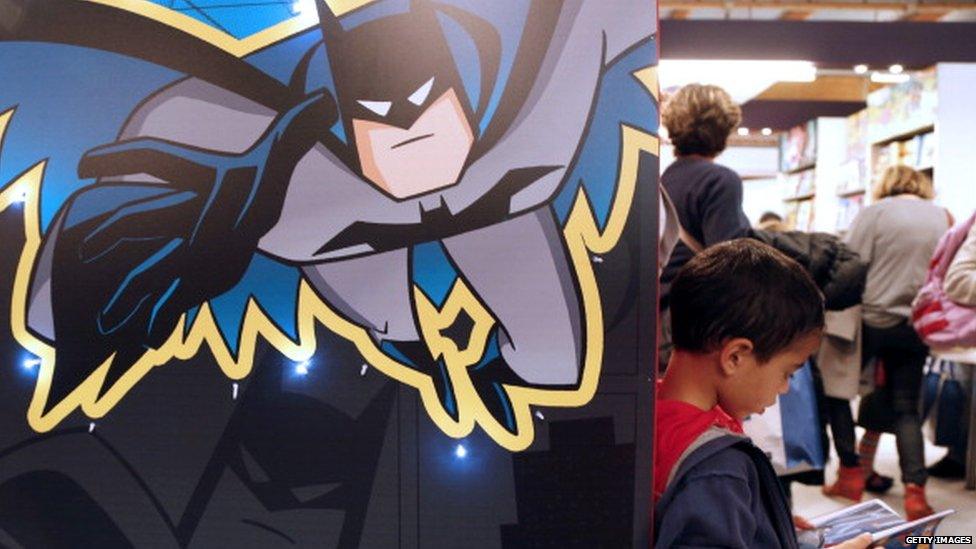
Graphic novels, comic books or animated stories - everyone knows at least one character from one of them, be it Superman or Spider-Man.
But the big names dominating the books and Hollywood are all white, says a Radio 1 and 1Xtra Stories documentary.
One of the biggest comic book publishers, DC Comics, says that the lack of diversity in publications is an industry-wide problem.
It believes there's been an increase in the number of people from different racial backgrounds interested in its content.
Dan Didio, who is co-publisher of DC Entertainment, agrees that there "doesn't seem to really be a proper representation of ethnic characters across the entire industry".
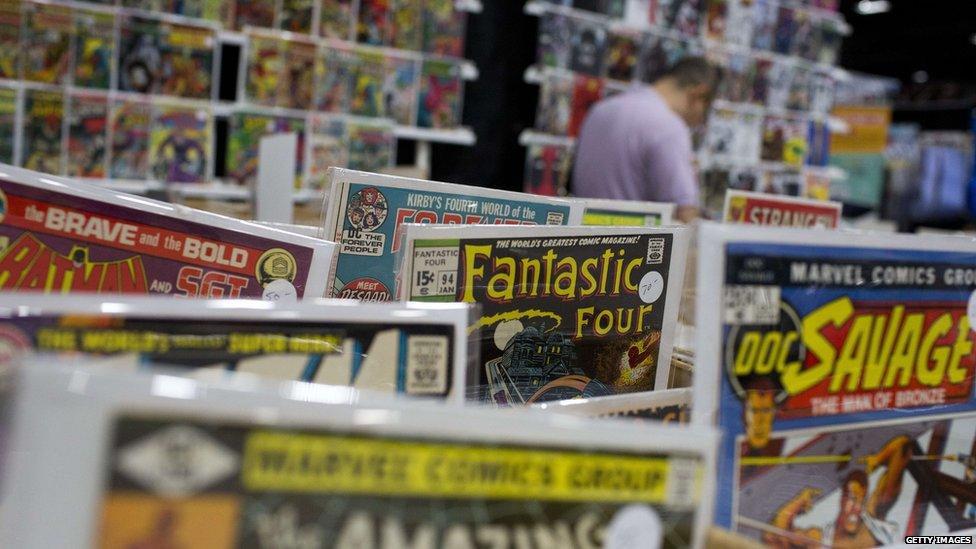
"It's something we've been aware of for a while, and we've made some great steps along the way to improve diversity in our product.
"What we've done is we've introduced new characters as well as re-introduce characters with names that people might recognise from earlier incarnations, such as Firestorm, and introduced them as African-American or with the Adam as Asian in order to help diversify our line."
Dan said that he had noticed an increase in ethnic minorities going to comic book conventions who are "hungry" for material they can relate to and engage with.
"I can't speak for other companies, I can only speak for myself but I think there's a level of awareness and a level of urgency that we all realise that we have to be really reflective of these times.
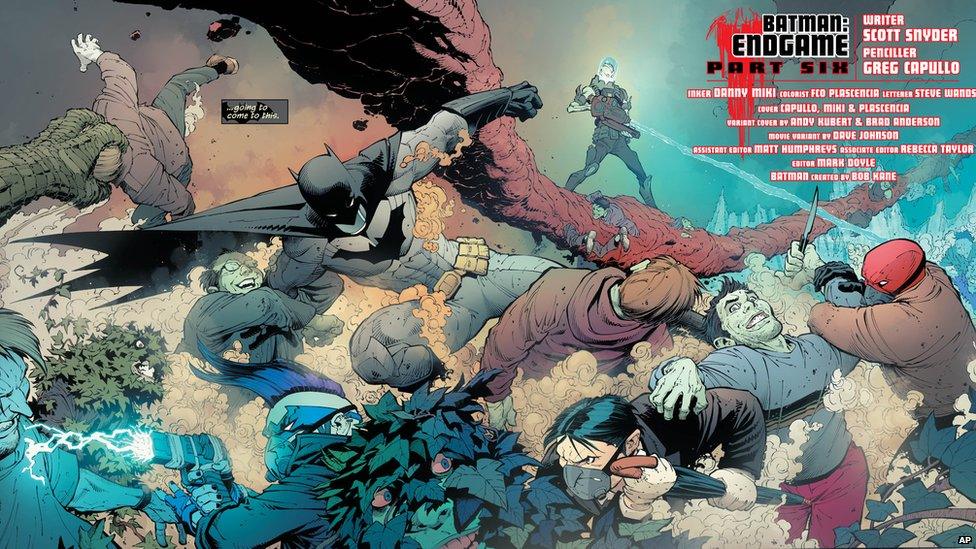
"There's a very hungry audience, excited audience and the reason why we know that exists is because we go to the conventions and we hear from our stores and you hear the make-up of the people shopping in those stores."
But he said the problem isn't just a "DC or Marvel" problem, but "leaders in the industry should lead by example" and they should "set the standard".
"You see the people walking the halls of all these conventions that are taking place and convention attendance is up across America. And this is a new audience coming in, it's a younger audience coming in, it's a more diverse audience coming in.
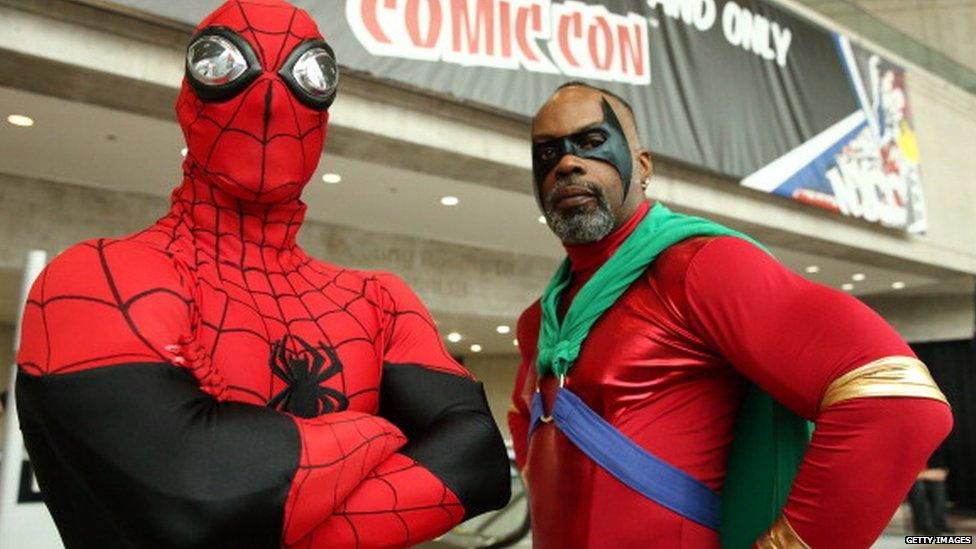
Cosplay fans attend the opening day of New York Comic Con
"If they're not coming through our books and they're hungry to read something then we've got to create something for them that they want to embrace and enjoy."
Steven Walsh works at Gosh comics in central London and says their remit in the shop is to provide a "wide range" of comics which "leads to a wide range of customer bases".
"The thing about any creative medium is if you create things for people they will come to it. Traditionally there haven't been enough characters of colour in comics.
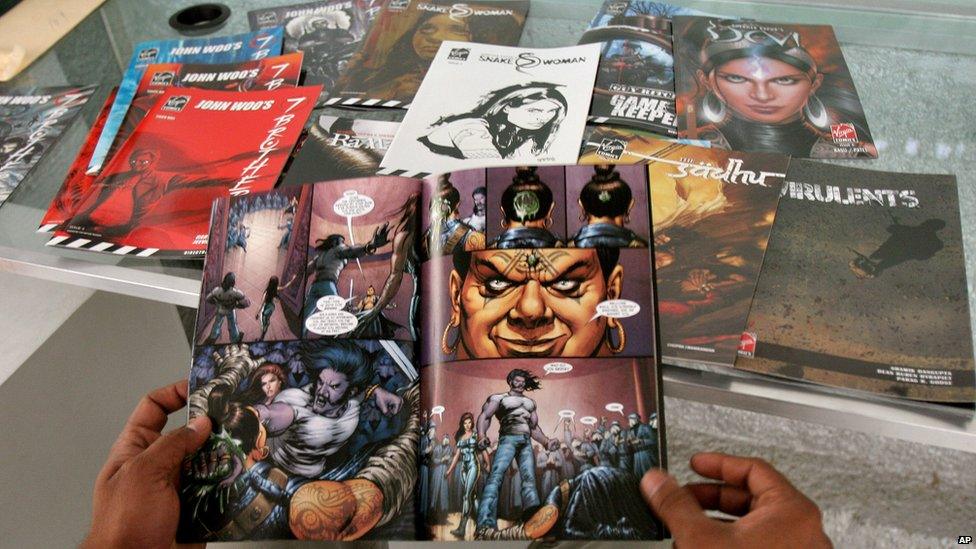
"But when they create more you get more readers of colour. And you do it right, that's the other thing, it's not just a case of for the sake of it. You tell a good story to go with it and then it's going to bring new readers in."
The other question being posed in the documentary is the lack of female ethnic minorities in comic books.
Clare Ferguson, who is the director of Diamond Steel Comics Ltd, says: "I think it's pushing people to the top, the writers, the artists. Like our artists are all women so they draw women brilliantly and if you can push those people into those jobs, then these things will happen naturally.
"I think it does need to be forced a little bit though."
White Men in Capes is on BBC Radio 1 on Tuesday 7 July at 9pm and BBC Radio 1Xtra on Sunday 12 July at 9pm.
Follow @BBCNewsbeat, external on Twitter, BBCNewsbeat, external on Instagram, Radio1Newsbeat, external on YouTube and you can now follow BBC_Newsbeat on Snapchat